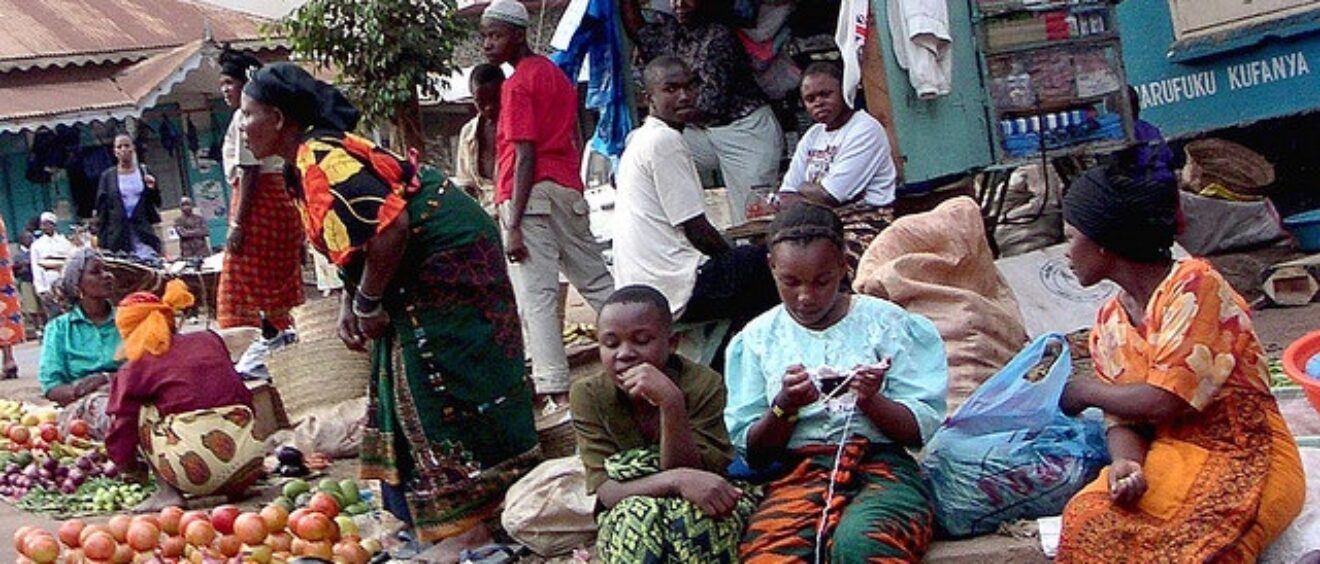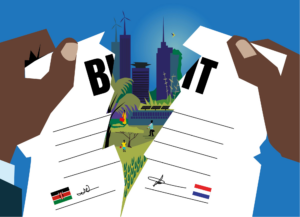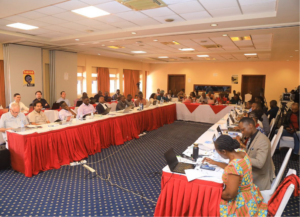
Toward a global investment system centred on people and planet
Both ENDS collaborates with partners worldwide to tackle the root causes of inequality and environmental degradation, many of which are embedded in the current global trade and investment system. Bilateral investment treaties (BIT) and other international investment agreements, such as the Energy Charter Treaty (ECT), often give corporations the right to sue governments for policies, such as measures to reduce carbon emissions or limit use of toxic chemicals, that may affect their (potential) profitmaking. Through Investor-State Dispute Settlement (ISDS), as the system is known, corporations can bring their cases to an extrajudicial tribunal whose decisions can oblige a government to pay hundreds of millions of dollars in taxpayer money to investors. The mere threat of an ISDS case can create a chilling effect on sound policymaking in favour of the interests of people, human rights, the environment and the climate.
Together with partners, Both ENDS has helped increase knowledge and awareness about the harm of ISDS in bilateral investment treaties. Thanks to decades’ of work on the topic, more and more countries have reconsidered such treaties and the ISDS system, and are pursuing a path toward more equitable and sustainable investment partnerships. In the last decade, South Africa, Indonesia, India, Ecuador, Burkina Faso, and Tanzania have all taken steps to renegotiate their investment treaties, including by terminating their BITs with the Netherlands.
In these processes, civil society organisations in the named countries and Both ENDS joined hands. We exchanged information and technical knowledge and engaged in joint strategizing. Both ENDS used its expertise, amongst other things, to create a map with key information about the status of all Dutch BITs that contain ISDS.
The most recent termination of a BIT with the Netherlands was done by Kenya, after an extensive review of its international investment agreements with the aim of ensuring better alignment with development objectives and sovereignty concerns. The decision marked a huge victory for civil society organisations in Kenya, who campaigned for a new investment paradigm that contributes to sustainable development and benefits Kenyan society, particularly women and young people. Through their #TerminateKenyaDutchBIT campaign, partner organisations in Kenya effectively raised public awareness and focused policymakers’ attention on the need to terminate the treaty. Also in this case, Both ENDS shared its expertise at the request of our partners.
THE ENTEBBE DECLARATION: A NEW VISION ON GLOBAL INVESTMENT
The termination of the Kenya-Netherlands BIT marked an important step in the right direction – an opportunity for both countries to better align their investment policies with social justice and sustainability principles. Following Kenya’s decision, the Dutch Ministry of Foreign Affairs invited Both ENDS and partners to share perspectives on how future BITs could be structured. These discussions inspired the idea for a broader convening of civil society organisations, academics and former policymakers to discuss the key features of a new, improved system of governance for global investment.
Hosted by the Southern and Eastern Africa Trade Information and Negotiations Institute (SEATINI), a longstanding partner of Both ENDS, and co-organised by Both ENDS, and FGG Alliance allies SOMO and the Transnational Institute, over 50 participants from 20 countries gathered in Entebbe, Uganda in November to rewrite the rules of the global investment regime. The Civil Society Forum on ‘Aligning Investment Policy Frameworks to Climate and Sustainable Development Goals’ resulted in the groundbreaking Entebbe Declaration, a unified call from participating civil society organisations for transformation of the investment system.
The declaration, which gives a voice to those who are normally excluded from policymaking on global investment, offers a clear and actionable roadmap for change. The declaration calls for the replacement of ISDS with mechanisms that respect state sovereignty and prioritise the welfare of people and the planet over corporate profits. It insists that investment frameworks must actively support climate goals by promoting renewable energy, ending fossil fuel subsidies, and financing green transitions. The declaration also emphasises the importance of community-led development, technology transfer, and investments that create local value. Crucially, the declaration also demands binding corporate accountability for human rights and environmental protection. With the Entebbe Declaration in hand, Both ENDS and partners are bringing these points to policymakers around the world, including in the Netherlands, the EU and at key international forums of the Organisation for Economic Co-operation and Development, UN trade commissions (UNCTAD and UNCITRAL) and the World Trade Organization.
ISDS IN THE ENERGY CHARTER TREATY: PROGRESS AND CHALLENGES AHEAD
As the Entebbe Declaration makes clear, the world urgently needs an investment governance system that facilitates a green and just energy transition, which means putting a nail in the coffin of the Energy Charter Treaty, the international investment agreement under which the most ISDS cases are filed. We celebrated an important victory in the fight to end ISDS in June, when the EU, with nearly unanimous support of the European Parliament, officially withdrew from the ECT. The EU decision followed years of successful campaigning in Europe and was prompted by decisions of several EU member states, including the Netherlands in 2022, to withdraw. For years, Both ENDS, together with our allies in the Fair, Green and Global Alliance, has co-authored reports, and provided technical support to allies and partners, particularly to prevent expansion of ECT and its ISDS clause to new countries in the Global South. In its decision, the EU echoed our key concerns about the ECT’s incompatibility with climate and sustainable development goals.
Unfortunately, the EU withdrawal only goes into effect in 2025. Just months after the EU’s official decision, ExxonMobil announced an ISDS lawsuit against the Netherlands for the closing of gas fields in Groningen, where communities have been severely damaged by earthquakes due to gas extraction. If ExxonMobil succeeds, billions of Dutch taxpayer dollars would flow into its pockets, adding to the billions in profits they’ve made from exploiting Groningen’s natural resources. Going forward, Both ENDS, together with partners and allies in the Handel Anders coalition, aims to raise awareness about the lawsuit and draw the links to similar struggles in the Global South and the urgent need for change.

In 2024, the Bilateral Investment Treaty between Kenya and the Netherlands stopped

Over 50 participants from 20 countries gathered in Entebbe, Uganda in November to rewrite the rules of the global investment regime

Gas drilling in Groningen. ExxonMobil announced an ISDS lawsuit against the Netherlands for the closing of these gas fields. Photo by 350.org
